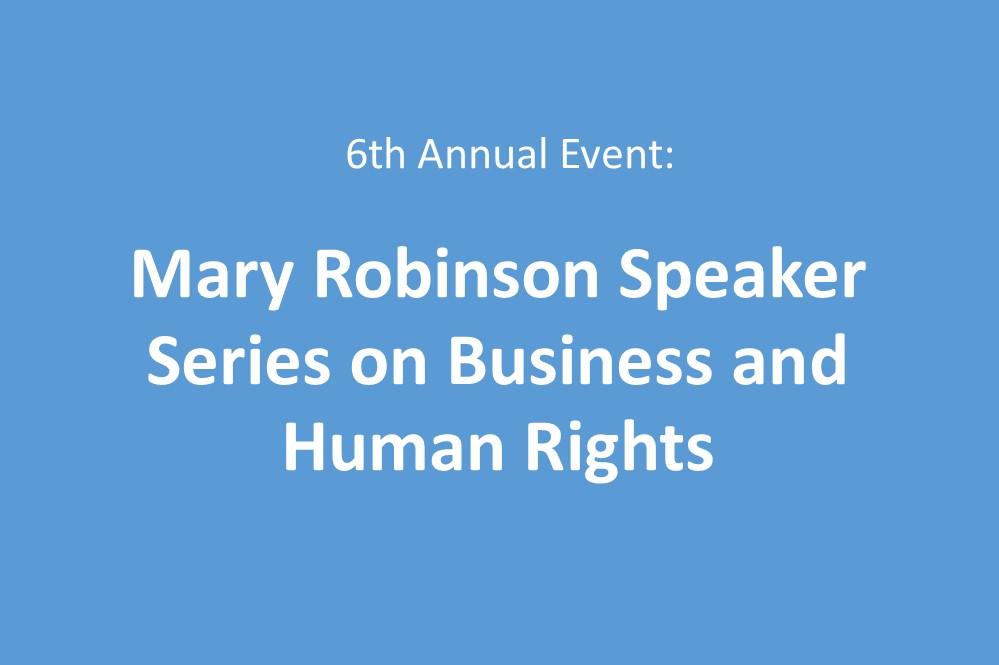Roosevelt House in New York, once home of human rights champion Eleanor Roosevelt, played host to the 6th annual Mary Robinson Speaker Series on Business and Human Rights titled “Business and Climate Justice: Human rights from the frontlines to Paris”.
Understanding the role business can play in realising climate justice was the focus of the 6th annual Mary Robinson Speaker Series on business and human rights. The event took place on the eve of the Sustainable Development Summit in New York at which the new global development agenda will be formally launched and looked ahead to the new climate agreement to be signed in Paris this December.
Heather Grady, Vice President of Rockefeller Philanthropy Advisors, speaking on behalf of Mary Robinson, highlighted the value of a climate justice approach to business engagements. Climate justice, she read, “provides a framework not just to think through the climate and sustainability action a business can take to reduce risk and maximize opportunities, but also to empower and protect the communities business relies on to have a robust social licence to operate.”
The multi-disciplinary panel on the night included Jacqui Patterson, Director of Environmental and Climate Justice at National Association for the Advancement of Coloured People; Jim Clarken, an Executive Director of Oxfam International and Chief Executive of Oxfam Ireland; John Church, Executive Vice President of Supply Chain at General Mills, Inc; Marcela Manubens, Global Vice President for Social Impact at Unilever; and Marco Simons, General Council at Earth Rights. The panel was moderated by Rajiv Joshi, Managing Director for the B-Team.
The panel discussed the market opportunities presented to businesses that take a lead role in terms of sustainability action; the importance of ensuring decent work for all people engaged in company’s supply chains and the need for consumer engagement. Mr. Church told the audience that General Mills is targeting a 28% reduction in greenhouse gas emissions by 2025. Ms. Manubens, who chose an image of a crowded boat of migrants as her background slide, emphasised the responsibility business has to protect people in the most vulnerable situations. She said acknowledging the Guiding Principles on Business and Human Rights was not sufficient; the principles had to be implemented across all business practice for multinationals.
Noting that fossil fuel companies are not as sensitive to consumer demand as other sectors, Mr Simons informed the audience of a landmark human rights complaint filed by Greenpeace Philippines and several other environmental groups calling on the Philippines Commission on Human Rights to investigate so-called “Carbon Majors” for human rights violations resulting from impacts of climate change.
The assembled audience was also given the opportunity to rise from their seats for a hip-hop performance by artist and activist Xiuhtezcatl Matinez. Armed with an eloquence beyond his years, Xiuhtezcatl, 14, insisted that climate change is a human rights issue, and would only be solved if all people worked together. In concluding, Phil Bloomer, Executive Director, Business & Human Rights Resource Centre, reminded the audience of the importance of the remaining months of 2015 and the value of a climate justice narrative in ensuring that people are considered as the world takes action on climate change.
Panel discussion and audience Q&A, inlcuding respondent interventions by Ed Cameron, Managing Director, BSR, and Dymphna Van der Lans, CEO, Clinton Climate Initiative.


